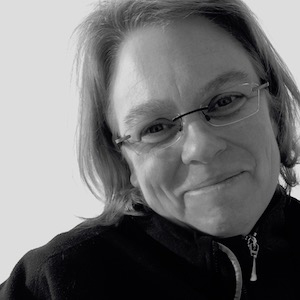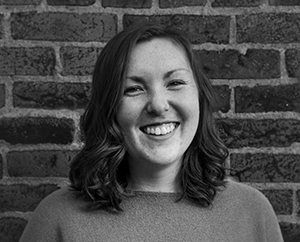
An Allegheny College professor and alumna have each been awarded a 2020 Science as Story Fellowship from Creative Nonfiction, a nonprofit organization in Pittsburgh.
Catharina Coenen, professor of biology and biochemistry, and Megan Arnold, a 2019 graduate who majored in biochemistry and minored in psychology, were among 12 individuals selected for the fellowship.
The Science and Story Fellows will take part in a series of writing workshops, led by writer Katie Booth, exploring the use of narrative in their science-focused stories. The workshops explore the structure and narrative arc of excellent science essays and address such topics as ethics in nonfiction writing, the process of revision and how to publish works. Fellowship recipients also have opportunities to workshop works-in-progress and get feedback from peers and the instructor.
Coenen is a first-generation German immigrant to northwestern Pennsylvania, where she has served on the Allegheny faculty since 1999. Her scientific work has been published in journals such as Plant Physiology, Molecular Plant-Microbe Interactions, and Trends in Plant Science. Her essays can be found in the American Scholar, the Southampton Review Online, the Christian Science Monitor, Appalachian Heritage and elsewhere. Coenen also has been awarded a Hedgebrook Residency for 2020.
“Both Megan and I first became drawn into creative writing through taking Matt Ferrence’s Creative Nonfiction class at Allegheny College — we went through the course in different years, but we have both emerged wanting to continue,” Coenen said. “The intersections between creative nonfiction and science writing that are the focus of the Science as Story workshop now provide a wonderful opportunity to delve deeply into this particular area of creative writing.”
Arnold grew up on a farm in rural Ohio before attending Allegheny, where she graduated summa cum laude and received the Dr. James H. Mullen, Jr. Student Prize for Civility in Public Life. Arnold currently works as a post-baccalaureate researcher at the Pittsburgh Hearing Research Center, studying the neurobiology of the auditory system. She also is a dialogue moderator and advocate for the d/Deaf community.
“This workshop is a great example of how Allegheny instills lifelong values of interdisciplinary learning, values that influence students and professors alike,” Arnold said. “I spent most of my time in Steffee Hall, but the English Department helped me see the synergy between the natural sciences and the humanities, which is the main reason I sought out this workshop. Spending time thinking about both disciplines at Allegheny, and how they intersect, offered an experience that’s greater than the sum of its parts.”
The Creative Nonfiction Foundation pursues educational and publishing initiatives in the genre of literary nonfiction. Its objectives are to provide a venue, through the magazine Creative Nonfiction, as well as through the In Fact Books imprint, for high-quality nonfiction prose (memoir, literary journalism, personal essay); to serve as the singular strongest voice of the genre, defining the ethics and parameters of the field; and to broaden the genre’s impact in the literary arena by providing an array of educational services and publishing activities.



